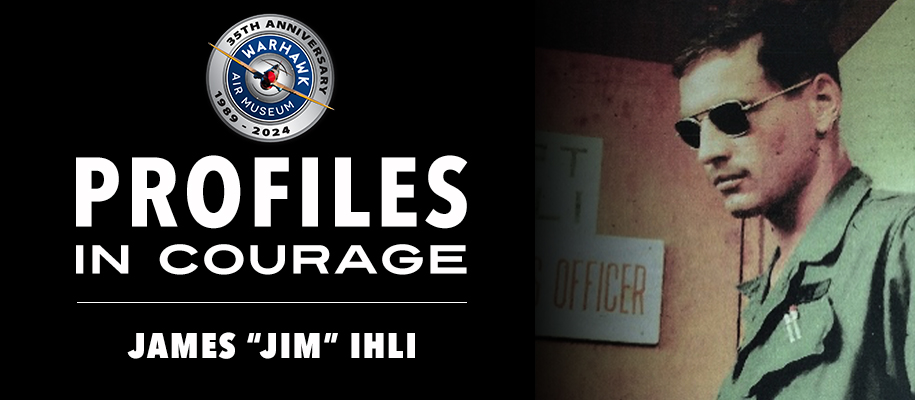
Posted On: May 24, 2024
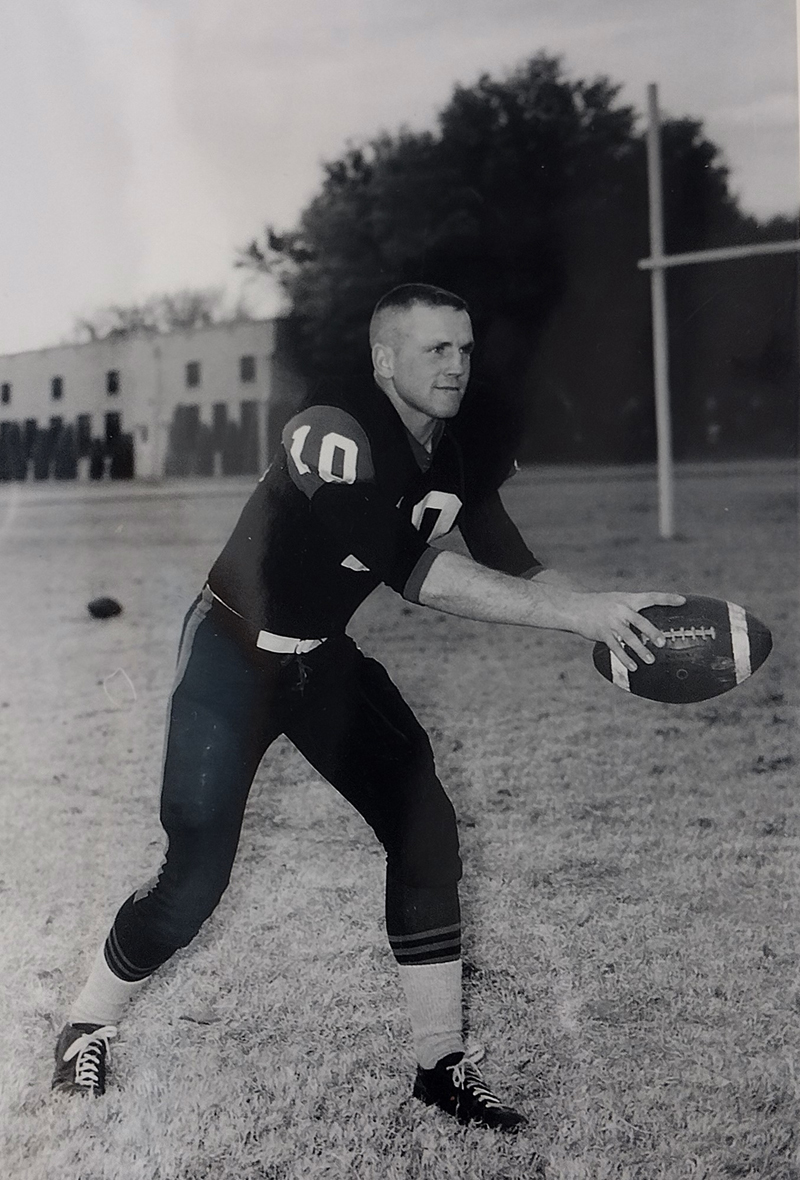
Born in Caldwell, Idaho on December 22, 1941, James “Jim” Ihli grew up enjoying the many outdoor adventures Idaho offers, particularly hunting, fishing, and camping. After graduating from Melba High School in 1960, Jim attended New Mexico Military Institute (NMMI) on a ROTC scholarship playing football. During his NMMI football career, Jim played backup quarterback to future Pro Football Hall of Fame inductee, Roger Staubach.
Jim later received a football scholarship to play at Idaho State University, graduating in 1965. In March of 1966, Jim enlisted in the U.S. Army. He trained as a helicopter pilot for the medical evacuation unit (medevac). The callsign for all medevac units during the Vietnam War was “D.U.S.T.O.F.F.”, which stands for “Dedicated Unhesitating Service to Our Fighting Forces.” The medevac units of the Vietnam War were instrumental in saving thousands of lives as they transferred wounded and dead soldiers straight from the battlefield to nearby hospitals. They depended on the Bell UH-1 helicopter, known as the “Huey”, which was large enough for medical teams to treat the wounded on board while traveling to a hospital. These helicopter ambulances transferred over 900,000 wounded troops during the Vietnam War.
Flying as a DUSTOFF pilot
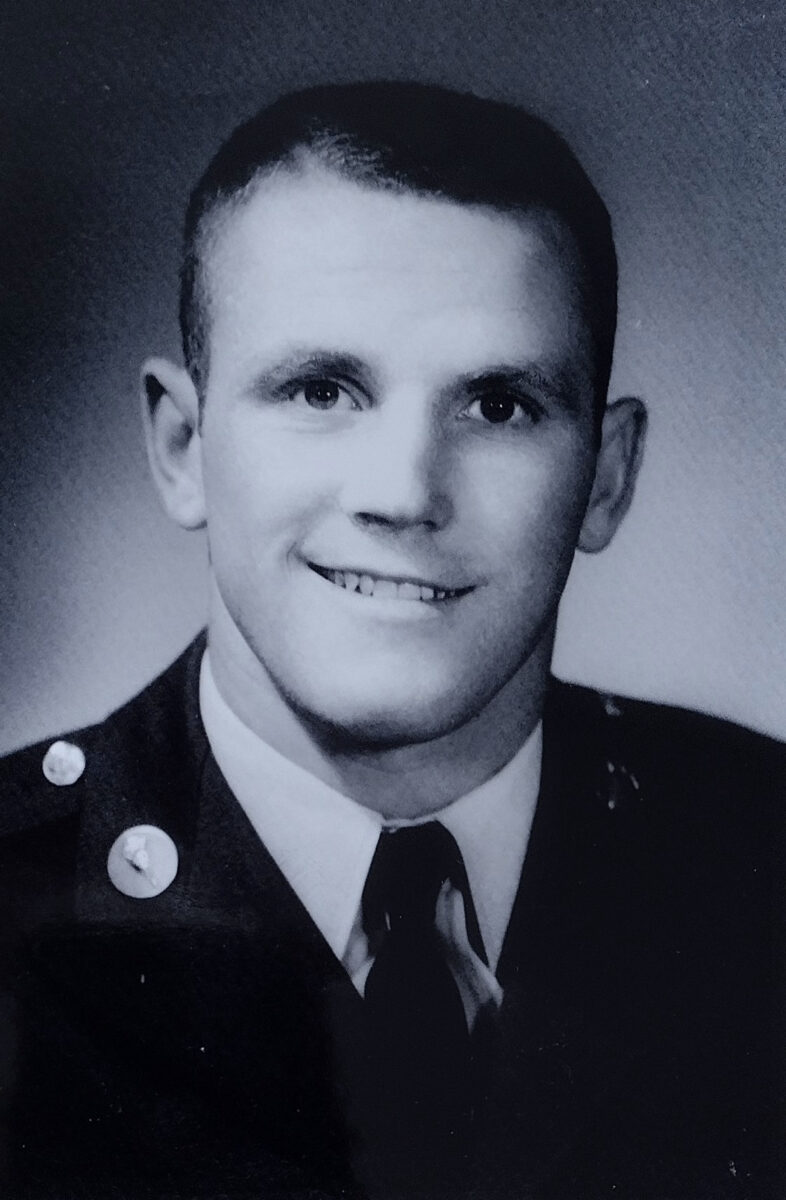
Jim was in Vietnam from August 14, 1967 to March 14, 1969, assigned to the 254th Medical Detachment Helicopter Ambulance (HA) with the 44th Medical Brigade as a medevac helicopter pilot. The helicopter’s callsign was DUSTOFF 105. The DUSTOFF helicopters had a number associated with it as an identifying marker. Jim’s younger brother, Mike, remembers that Jim’s service in Vietnam began with heartache. One of Jim’s good friends from flight school flew into the side of a mountain during a night mission in dangerous weather. He did not survive and Jim escorted his body back to family in Indiana.
Skills required of the medevac units included: landing and taking off in rough jungle terrain, avoiding enemy fire from the ground, and landing in areas during firefights to load the wounded and dead. Helicopter gunships would escort Jim to clear an area considered “hot” (full of enemy fire) by circling the landing zone and firing at the enemy to make way for the medevac units to land. Enemy forces fired at Jim multiple times.
Mike recalls: “I remember Jim telling of another night that the fog was so thick that they could not see a 100 feet in front of them. He had to end up doing an evacuation by hovering over a railroad track close enough to see it with his landing lights for a distance of about 30 miles, and then taking a blind heading over the jungle until he came to where the touchdown point was.” Jim also once flew an evacuation mission for 14 hours straight, not stopping once.
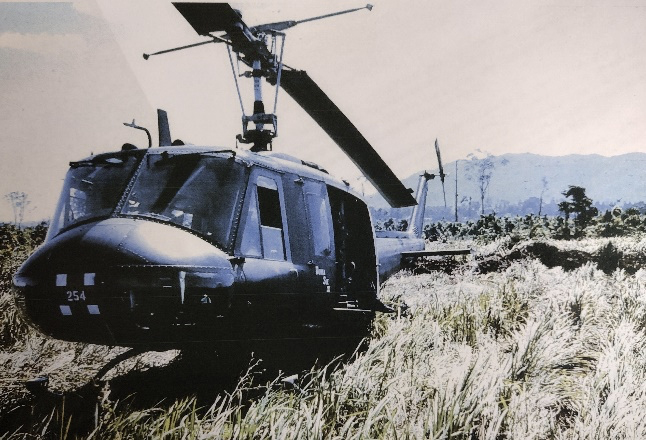
When coming into an area that was “hot,” a pilot would come in high and lay the helicopter over on its side. The helicopter would then fall too fast for the Viet Cong (VC) to target them. The pilot would keep the helicopter in this position until right above the ground, when they would flare the helicopter out and land. Jim told Mike about this method while on a fishing trip. It was during these trips that Jim talked about his service in Vietnam.
On January 24, 1970, Captain Jim Ihli received the Distinguished Flying Cross for his actions on February 12, 1969. That day, Jim performed six rescue missions near the city of Phan Thiet in the Republic of Vietnam. The allied forces faced heavy casualties fighting the North Vietnamese battalion and Jim responded to the call for assistance. He flew into the landing area without any helicopter gunships covering him, meeting with hostile enemy fire and multiple hits to his helicopter. Still, Jim was determined to complete the mission: landing and evacuating the wounded. He went in six times, each time facing heavy enemy rockets and automatic weapons fire. His efforts resulted in the successful evacuation of 13 wounded soldiers.
Throughout his service in Vietnam, Jim received the Distinguished Flying Cross, the Air Medal with twenty-nine oak leaf clusters, the National Defense Service Medal, the Vietnam Service Medal, the Vietnam Campaign Medal, and the Army Aviator Badge. After completing his tours in Vietnam, Jim returned to Fort Wolters, Texas to become an instructor. On January 14, 1975, Jim retired from the U.S. Army. When Mike traveled to Texas to accompany Jim home to Idaho, Jim’s gunship pilot comrades shared that Jim was the best they had ever flown with.
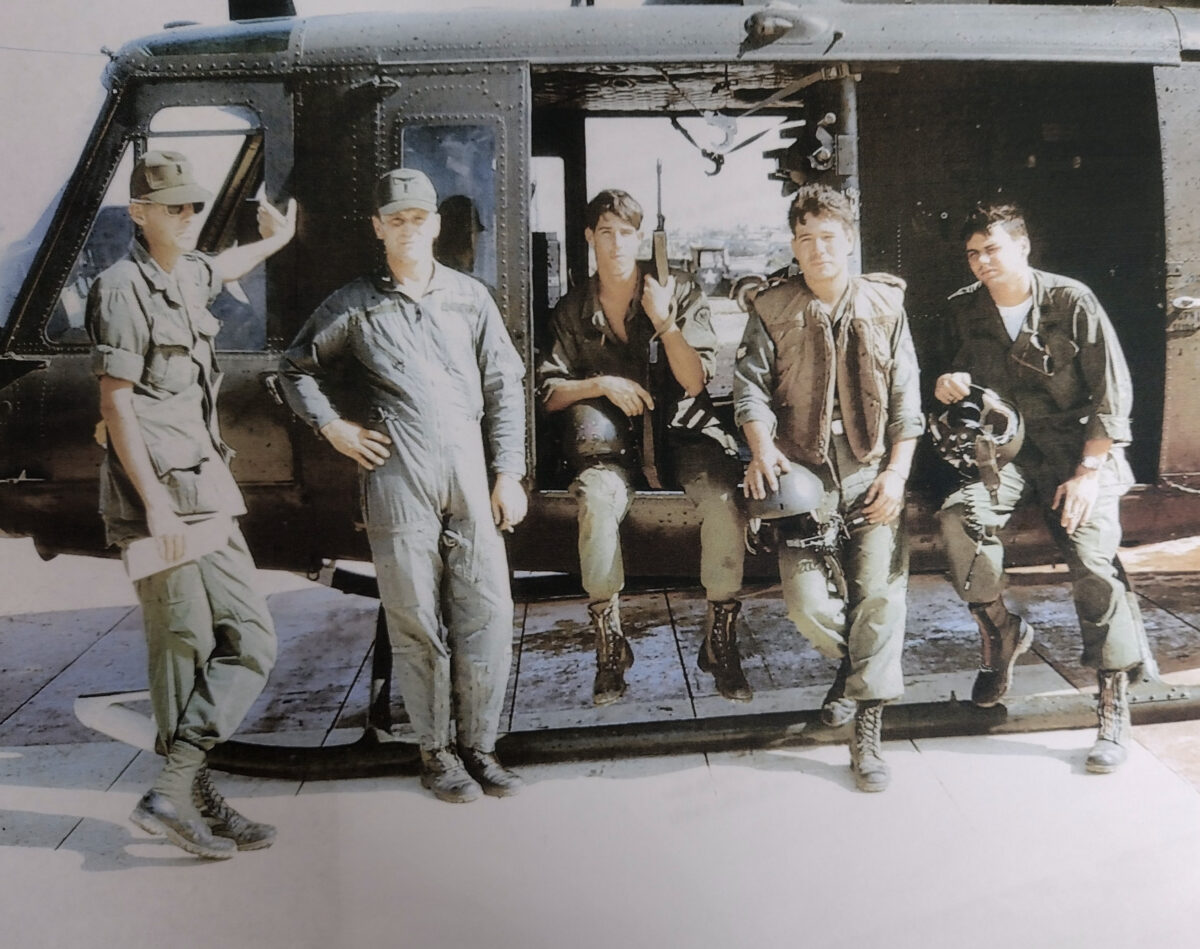
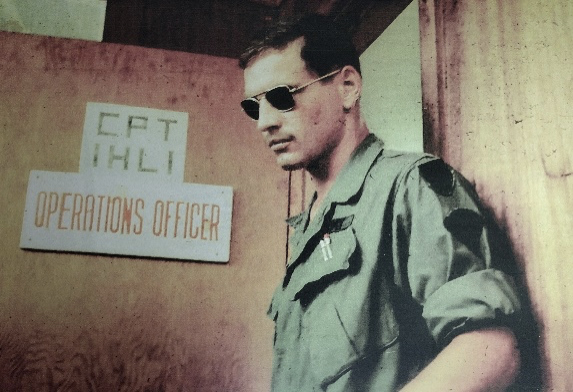
Reconnecting in Idaho
Jim stayed in Idaho and continued to love hunting, fishing, and camping with his family—including his cousin, Gene Ihli, who also served in Vietnam. Discussing their time in Vietnam during a fishing trip, Jim and Gene realized they had been in the same battle! Jim evacuated wounded soldiers as Gene provided cover flying the F-4 Phantom. Gene remembered that with the fighting growing more intense and the quarters being so close, he almost shot down a helicopter. Jim remembered how during that battle, cannon fire from an F-4 went right past his helicopter window. We will never officially know if the helicopter pilot was Jim and the F-4 pilot was Gene. Gene’s display case at the Warhawk Air Museum sits directly across from Jim’s.
Jim owned a bar called Jimmy Jet’s 44 Club in Boise, Idaho in honor of a nickname given to him by Mike on their trip home from Texas. Today, it is just the 44 Club. Jim also had a love for Corvettes, having owned more than one in his life. Jim Ihli passed away after fighting cancer for 20 years. He died on March 29, 2010, at the age of 68.
Thank you for your service, Captain Jim Ihli.
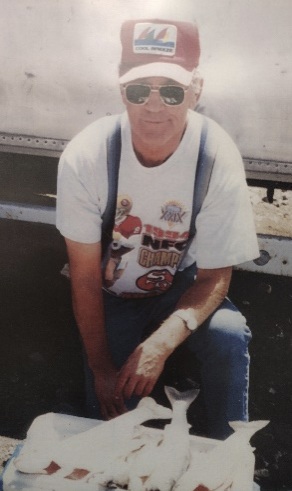
Resources:
- “Medevac.” National Museum of the United States Army, www.thenmusa.org/armyinnovations/innovationsmedevac/. Accessed 9 Nov. 2023.
- “James Hugh IHLI (1941-2010) - Find a Grave...” Find a Grave, www.findagrave.com/memorial/50550549/james-hugh-ihli. Accessed 9 Nov. 2023.
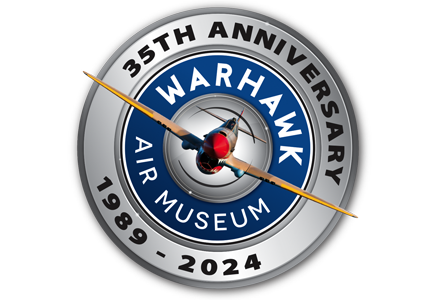



Freedom isn’t Free!
I remember the Feb 12, battle very well. We had three companies of the 101 st Air Borne, I was with Delta Company 3/506 101st. Jim probably evacuated some of our wounded and the F-4 Phantom dropped napalm for us. US forces ultimately prevailed .
What skiil and courage this man exemplified. I flew in LAFD helicopters as an observer on wildland-interface fires, I can’t imagine the stress of knowing that people were trying to shoot us out of the sky. What a shame to lose a man like this so soon.